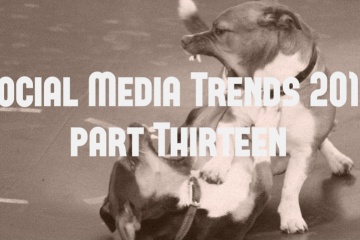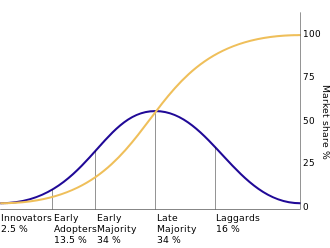Social Media Trends 2014 (Part 13): The (Unavoidable) Social Media Backlash

View the full Social Media Trends 2014 SlideShare summary here.
Social Media Trends 2014 (Part 13): The (Unavoidable) Social Media Backlash
Welcome to the send last instalment of the Kamber Social Media Trends 2014 series.
Being an agency that specialises in social media you might think that this one was a tough one to include in our predictions for 2014.
It was, and it wasn’t.
In 2014, you can expect to see social media’s role recalibrated to play a support role for the ongoing content produced by brands and organisations.
This is a good thing.
The backlash we’re more likely to see comes in the form of particular age groups and niche audiences who will increasingly avoid the mainstream networks in 2014.
The mainstream media will also continue to find stories about the negative impact social media is having on society while glossing over the positive impact it can bring.
Privacy will also be even more of a pressing issue.
Our general technology obsession will be increasingly called into question too.
Why will this happen? Let’s find out.
Trend 13: Social Media has enjoyed a period of being the flavour of the month, but some big questions will be asked in 2014
 In part two of this series, we touched on the diffusion of innovations model (see right).
In part two of this series, we touched on the diffusion of innovations model (see right).
This theory lays out the role early-adopters play in the adoption of new ideas and technology, which then spawns more mainstream use.
The by-product of this process is that many early adopters move away from these ideas and technologies once they are adopted by the masses.
We’ve seen teenagers exhibit this behaviour in 2013 with many ‘fleeing’ Facebook and turning to new school messenger apps.
It is important to note they aren’t giving up on social media completely, they are just being social in a more direct way.
But, in the eyes of many people, Facebook is social media.
The more that this audience moves away from traditional platforms like Facebook, the more you’ll see stories appear about the ‘death of social media’ which will only fuel the broader backlash movement.
This article from Yahoo.com back up that argument.
The industry backlash
The marketing industry, particularly industry publications, will be where the backlash is likely to gather the most momentum.
Serious questions about the value of social media will be asked.
Serious questions about the money spent on social media in the last few years will be asked.
Serious questions about the commercial impact of social media will be asked.
As touched on in the introduction, as long as the industry recognises that a recalibration is taking place, then most of these questions will be able to be answered adequately.
But, as we know, little things become big issues at great speed in the modern media environment.
And, ironically, it is social media participants who will the fuel this fire.
Traditional media’s role in the backlash movement
If the rumblings start in industry media, mainstream media is likely to pick up on it and extend the conversation.
This will only encourage more people to voice their displeasure at the tech-shaped world we now live in.
It’s true, we’ve got completely drunk on social media and general technological advancements and it is a point of contention for many members of the public.
Watch out for this to be amplified in 2014.
The public’s relationship with brands
In 2013, we saw a number of examples of the public reacting negatively toward social media ‘campaigns.’
This isn’t anything new, but it is happening with more and more regularity.
A good example was Domino’s who promised a ‘game changing’ announcement via social media for it only to be a new range of pizzas.
In the defence of Domino’s, they did a terrific job of reaching out to people that had voiced their displeasure towards the brand and offered them the chance to try one of the new pizzas for free.
It is a good reminder that adding value to the lives of your online communities, as opposed to pushing commercial messages, is the best way to achieve social media success.
Will the backlash really be worse in 2014?
All signs point to yes even though there has been no shortage of detractors over the last five years.
As outlined, the primary factors will be platform fragmentation, several (fair) questions from the industry, and the increasing apprehension of the public in response to overly commercial social media tactics.
It will be interesting to see how far the expected backlash goes and what impact it will have.
We only have one more instalment left in the Social Media Trends 2014 series.
Once that is posted, look out for our summary SlideShare presentation which will bring all of our predictions together in one easy-to-digest pack.